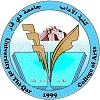There are many educational resources of higher education online for different purposes, such as learning, teaching, research, administration, and recognition. Here are some examples:
-
UNESCO promotes open educational resources (OER) in higher education, which are learning, teaching and research materials that are freely accessible, reusable, adaptable and redistributable. UNESCO also supports countries to enhance recognition of qualifications, mobility of students and staff, and inter-university cooperation through the Global Convention on the Recognition of Qualifications concerning Higher Education and regional recognition conventions. UNESCO also develops tools such as the UNESCO Qualifications Passport for Refugees and Vulnerable Migrants to facilitate access to higher education for those groups.
-
Educational Resources: An Integral Component for Effective School Administration is a paper that discusses the concept, types, importance, and challenges of educational resources in higher education. It also provides some recommendations for improving the availability and utilization of educational resources in academic institutions.
-
Guidelines for Open Educational Resources (OER) in Higher Education is a document that outlines key issues and makes suggestions for integrating OER into higher education. It covers topics such as policy support, promotion and awareness raising, capacity building, quality assurance, sustainability, and monitoring and evaluation.
What are the benefits of OER?
OER have many benefits for students, teachers, and institutions. Some of the benefits are:
– **Reduced costs. OER can save students money by eliminating or lowering the expenses of textbooks and other learning materials. OER can also save institutions money by reducing the need to purchase or license educational resources.
– **Increased access. OER can expand access to learning for anyone, anywhere, anytime. OER can also increase access to up-to-date, relevant, and diverse content that can be adapted to different contexts and needs.
– **Improved quality. OER can enhance the quality of education by enabling teachers to customize and update their course materials, and by providing students with multiple formats and perspectives to support their learning. OER can also foster collaboration, innovation, and peer review among educators and learners.
– **Empowered learners. OER can empower learners to take control of their own learning, by giving them the freedom to access, use, modify, and share educational resources according to their interests, goals, and preferences. OER can also promote learner autonomy, creativity, and critical thinking skills.
?How can I find OER
:There are several ways to find OER online. Some of the methods are
– **Use OER platforms. There are many websites that host and curate OER for different subjects and levels. For example, you can use OER Commons¹, Open Textbook Library, or OpenStax to find open textbooks and other resources.
– **Filter by license type. You can use search engines such as Google, YouTube, or Flickr and select the advanced search options to filter by usage rights. You can look for resources that are labeled as public domain, Creative Commons, or other open licenses that allow you to reuse and adapt them.
– **Search by subject or keyword. You can use Google Advanced Search⁴ and filter your results by usage rights, file type, domain, and other criteria. You can also use keywords such as OER, open educational resources, open textbook, or open courseware to narrow down your search.
– **Check your university repositories. Some universities have their own OER repositories and services that you can access. For example, you can check the University of Adelaide Library’s OER guide or the Embry-Riddle Aeronautical University’s OER guide for more information and resources.

